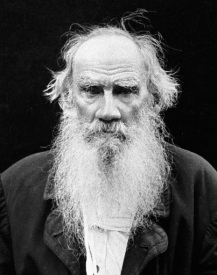After an unacceptably long break (after such a short experience with blogging), I write again to continue my online literary journal. I know I haven’t posted anything in many weeks; I recently started teaching 8th grade science for the NYC Department of Education. Between the work, the exhaustion, and the general chaos of change, I haven’t had a chance to keep up with the blog. This is the first free day I’ve had in a really long time; I sat down, put my feet up, got my coffee and books, and I’m going to seize the opportunity to write.
Although I’ve been pretty busy, I use most of the free time I can find to read (especially on the trains!). I recently found an interesting book on my bookshelf, assigned in one of my old college classes. The class was called, Imaginary Worlds: The Fantastic and Magic Realism in Russia and Southeastern Europe, for which the title is quite self-explanatory; we read Russian and Southeast European literature encompassing magical and fantastical themes. Our reading list consisted of many short stories, Aleksandr Pushkin’s Queen of Spades, Mikhail Bulgakov’s Master and Margarita, Abram Tertz’s Little Jinx (which we actually didn’t get to in class), Orhan Pamuk’s The White Castle, and finally, the book I found several weeks ago, Milorad Pavic’s Dictionary of The Khazars, A Lexicon Novel.
The Dictionary is a complicated and beautifully bizarre novel recounting the tale of a lost tribe called The Khazars and its conversion to a different religion. However, unlike normal novels, it is a collection of encyclopedias from three different sources (each representing a different Abrahamic religion) that addresses the mystery behind these lost people. Strangely, the book also comes in a male and female edition. The two editions are exactly the same except for a single short passage (I’ll let you explore that yourselves).
I have actually only read the Christian source so far; but Pavic is immensely entertaining and creative. The book is filled with bizarre occurrences, such as the creation of a human from the limbs of other humans, or the tattooing of The Khazars’ entire history on a man’s body (on every single limb and in tiny print!), or the deadly inscription of letters on a princess’s eyelids that immediately kill those who read them. Although it’s a fun and weird experience, Pavic also has many Serbian political and historical references in these accounts. Pavic commented that “each reader will put together the book for himself, as in a game of dominoes or cards, and, as with a mirror, he will get out of this dictionary as much as he puts into it, for you […] cannot get more out of the truth than what you put into it.”
Even though I haven’t read the Islamic and Judaic sources, I’m still really confident about recommending the book (and determined to finish it myself). The reason I didn’t read all sources was because I found a book of Leo Tolstoy’s early stories at the bookstore, simply couldn’t help myself, and started reading it. I didn’t feel too guilty (as I normally might) since The Dictionary is not one continuous prose piece, and I had been searching for Tolstoy’s stories for a while anyway. As for the Tolstoy, I was slightly disappointed in the first couple of pages of the first story in the book, Family Happiness. It seemed to be moving too slowly; yet, for some reason, I couldn’t stop reading it either. After 10 pages, it turned into a real page-turner even though there still wasn’t a lot of action. But the more I read, the quicker I came to realize that I was actually really attracted to the interactions between the characters.
Following up with another one of his stories, The Cossacks, it became clear that Tolstoy is exceptionally phenomenal with simple human emotions, desires, and reasoning. While I enjoyed Dostoevsky’s exploration of the deep, dark corners of the human mind in Crime and Punishment, Tolstoy’s portrayal of universal thoughts made it more relatable. (Although I should mention that I have not read any of Tolstoy’s novels and shouldn’t be making such generalizations just yet.) But I guess what I’m trying to say is that I was excited about the fact that an author who lived on the opposite side of the world 100 years ago expressed feelings and ideas that I experience here, today. I guess it just goes to show that we are all more alike than we think; we’re all human.
Finally, yesterday I found an old copy of Guy de Maupassant’s short stories at home and ventured to the fictional French settings. I have only read two short stories, The Necklace and The Piece of String, and I’ve enjoyed both very much. But I think I might have to save those for another post. That’s my (what was supposed to be short) update. I will try to drop by as much as I can.
Leave me a message about what you’re reading or suggest for me. :)
